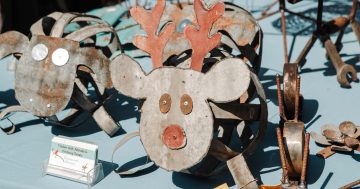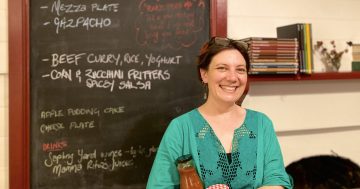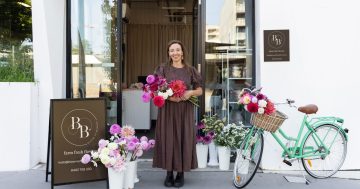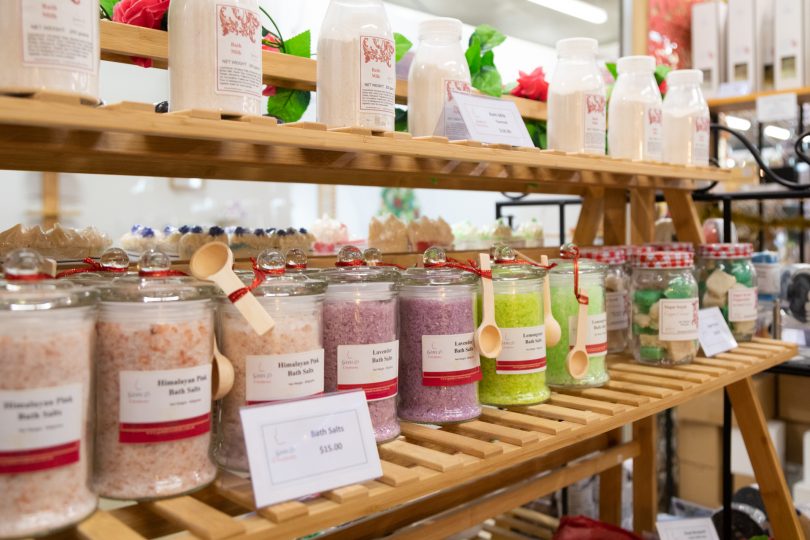
Artisan soaps and candles at Gem D Creations, Fyshwick Markets. Photo: Michelle Kroll.
As Christmas gift requests go, it was a substantial but reasonable one from a mid-20s offspring.
He’d been thinking about getting an Apple Watch, and was happy to go halves with the bank of Mum and Dad. We’d all chip in, Christmas gift issue solved.
I headed off to Civic thinking that at least I could purchase and wrap the gift for the Christmas tree. I’d anticipated queuing, but having made it to the front, was asked if I had an appointment. If not, they could “fit me in” about two-and-a-half hours hence.
Being a moderately busy woman with more calls on my afternoon than hanging around Civic and the full glare of lights, crowds and pumping music, I declined the opportunity and went back to work.
Since when, pandemic or no, did large stores behave like cosmetic surgeons or particularly sought-after plumbers? Why was my intention to pay for an expensive piece of equipment there and then, credit card in hand, not enough to permit entry to the sacred space? And whatever happened to customer service?
Contrast that with shopping in Braidwood last weekend or Phillip this week. At both small, locally owned businesses, run by women who are passionate about what they do, staff could not have been more helpful, or indeed grateful for the business.
Thoughtful suggestions were made, interested conversation had, and rather than departing in a stew of Yuletide irritation, I left actively wanting to shop there again (as opposed to swearing I would never again set foot on the premises if I could possibly help it).
For many, many reasons, there’s never been a more important time to shop with local small business.
The Council of Small Business Australia is promoting the Go Local First campaign, which urges us all to shop with our local businesses and inject our cash into our own economies.
Garnering support from Regional Development Australia and many local government organisations, the campaign is mustering all sorts of incentive schemes and promotions to encourage people in regional communities to shop locally.
Posties are groaning under the additional weight of parcels and the inexorable rise of Amazon and the like threatens local business (full disclosure, I bought the watch online rather than go through the palaver of making an appointment to do so).
But even small businesses in small towns often have vibrant websites that enable local business owners to reach a wider audience.
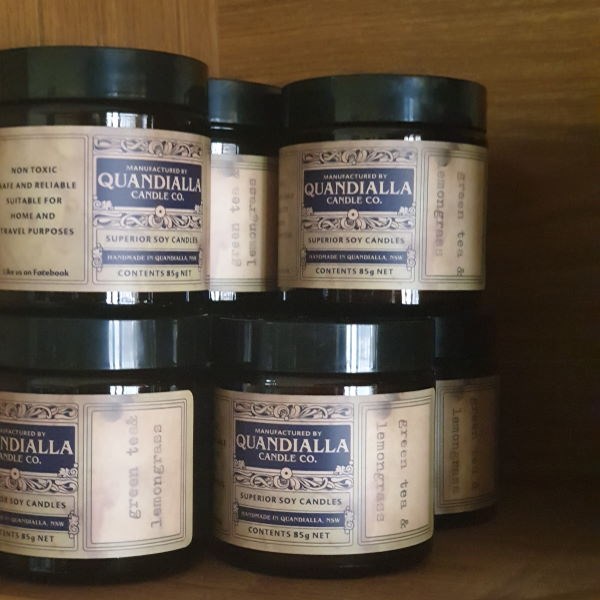
Quandialla Candle Co. Photo: Supplied.
Candle maker Sarah Ryan runs her business from the family farm near the tiny village of Quandialla on the South West Slopes, but sells around NSW and further afield. The internet makes her business possible.
Saloon Design House operates from Wallace St in Braidwood, and they’ve made a decision to sell their collection through the shop first, online second, with the intention of reigniting human connection after a horrible year.
“We want to provide an old-fashioned experience where our customers meet people who make the clothes, have garments fitted, are given good service and get to know us,” co-owner Jane Magnus says.
“Connecting with our customers is as important for us as it is for them. We have put so much love and care into our clothing that having a relationship is really important and meaningful for us.”

Claire Stewart with Arc Organics fruit boxes. Photo: Supplied.
At Arc Organics in Queanbeyan, Claire Stewart is doing a steady trade with her boxes of organic produce and custom boxes of stone fruit and seasonal treats, all available for order online but locally delivered.
There are a handful of shopping days to go before Christmas. Why not resist the purgatory of shopping malls and choose instead small, local shops, friendly customer service and the knowledge that you’ve done some good for local businesses that have had a hard year?












